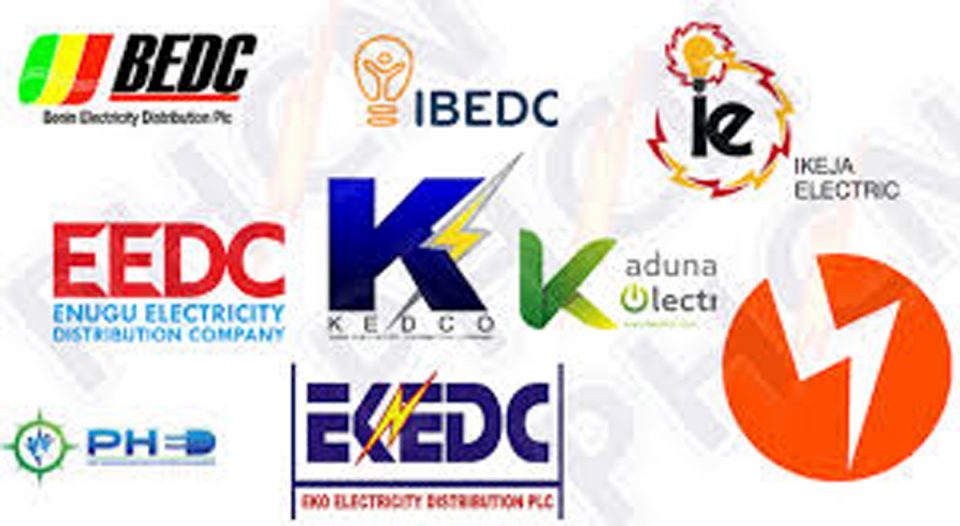Photo caption: DisCos logos
Nigeria’s electricity distribution companies collected N553.63bn in the first quarter of 2025 despite widespread complaints of low power supply, billing inefficiencies, and persistent outages.
According to the Nigerian Electricity Regulatory Commission Q1 2025 report, this revenue marks an N43.79bn increase over the N509.84bn collected in the previous quarter (Q4 2024), representing an 8.59 per cent rise.
This jump in earnings came even as Nigerians grappled with unreliable electricity, grid frequency instability, and supply fluctuations.
Although generation improved slightly — from 9,289.95 Gigawatt-hour in Q4 2024 to 10,304.47GWh in Q1 2025 — the increase was marginal relative to demand, and much of the energy was lost in transmission or not billed at all.
According to the report the Discos received 8,169GWh of energy from the grid but billed customers for only 6,631.92GWh, reflecting a decline in billing efficiency from 83.66 per cent to 81.18 per cent.
During the period, collection efficiency fell to 74.39 per cent, meaning that nearly N191bn in billed revenue was never recovered. The overall aggregate technical, commercial and collection losses soared to 39.61 per cent far exceeding the 20.54 per cent industry target.
Despite these inefficiencies and service complaints, DisCos were able to significantly boost revenue even as consumers lament that they are paying more for less power. Although there was no grid collapse in Q1, there were system trippings which left some customers in the dark.
NERC said that for the first time in recent quarters, Nigeria’s national electricity grid recorded zero system collapses between January and March 2025.
“There was no incident of system disturbance on the national grid in 2025/Q1,” NERC stated.
This came after years of recurring system failures that triggered nationwide blackouts and disrupted economic activity. The grid collapsed 12 times in 2024. However, despite the absence of full collapse, NERC flagged continued violations of key technical parameters.
“The average lower daily (49.28Hz) and average upper daily (50.77Hz) system frequencies were outside the normal operating limits (49.75Hz – 50.25Hz),” the commission warned, citing deviations that could threaten industrial equipment and operational stability.
The report also highlighted that voltage performance was equally problematic. “The average lower daily system voltage (296.56kV) and the average upper daily system voltage (346.82kV) were outside the lower (313.50kV) and upper (346.50kV) limits specified in the grid code,” it added.
NERC said it continued to engage the System Operator to improve grid coordination and reduce exposure to system risks caused by operating outside the prescribed frequency and voltage bands.
While the Transmission Company of Nigeria may view the absence of system collapse as a technical win, the commission noted that broader grid quality issues persist.
“The commission continues to push the SO to improve its system coordination activities to avert the system risk posed by the continuous operation of the grid outside the normal operating limits,” it stated.
Sunday PUNCH reports that power users across the country still experienced erratic supply during the quarter, underscoring that reliability and quality of service remain far from ideal.
=== PUNCH ===



